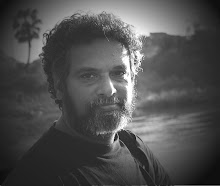Sangeeth Natak Akademi Awards to SRamanujam, Probir Guha, Arundhathi Nag

It is so happy to see the dear and near to theatre is accepted and honored. This year’s awards went to the theatre guru to many including me S.Ramanujam, Veteran actor Arundhathi Nag and director Probir Guha among others.
Legendary stage designer of Bengali theatre Khaled Chowdhury was awarded with the fellowship. 86-year-old Chowdhury remained behind the scene to create a revolution on the Bengali theatre for more than 50 years, as part of many landmark productions in Bengali theatre. He also is a book illustrator, cover designer, folklorist and musicologist.
“His way of working is unique. He knows how to use stage space particularly well. He creates both realistic and naturalistic sets. Through his works, the stage itself becomes a character,” says veteran director Kumar Roy.
Over the last five decades, Chowdhury has worked in landmark productions like Raktakarabi, Putul Khela, Pagla Ghoda for Sombhu Mitra, Shuturmurg, Evam Indrajit for Shyamanand Jalan, Dakghar and Gudia Ghar for Tripti Mitra.
“Before him, the emphasis of Bengali theatre was on actors and actresses and their acting prowess. Chowdhury made people understand that stage designing was an equally important element of theatre, an aspect that was overlooked in
Veteran theatre personality, Usha Ganguly of Rangakarmee, who has worked with Chowdhury in Sarhad Par Manto and Badnam Manto says: “For us in Rangakarmee there are two gurus. One was Tapas Sen, who expired recently; the other is Khaled Chowdhury. There are very few artists who lead their life the way they work. Khaled da is one of them. His lifestyle is similar to what he believes in.”
Markand Bhatt And Arundhati Nag For Acting
Prof. Markand Bhatt (
One of the few talented multi-lingual actors that Indian theatre Arundhathi Nag, was also awarded this year. I remember the exemplary acting Arundhathi Nag did in Girish Karnad’s Bikhre Bimb that won her the
S. Ramanujam and Probir Guha, The directors
“It is yet another life,” says Ramanujam about his dramas. He started his career as a school teacher in Gandhigram in Dindigul district and later studied theatre arts at National School of Drama,
He was the one of the main associates of G.Sankara Pillai and was instrumental in envisaging The School of drama at Trissur and had worked as an assistant director of the school. Also he was the Head of the Department of Drama,
He has conducted a number of theatre workshops and directed plays in Tamil, Malayalam, Hindi, Telugu and English. Important plays written by him include Mouna-k-kural, Chembavalakali etc. He Directed over 40 plays in Tamil, Malayalam, and Hindi including Karutha Daivathe thedi (Sankara Pillai),Veriyattam, adaptation of Trojan Women using native oppari dirges, and Max Frisch’s
This award is recognition to his endeavor in theatre that came very late. With great gratitude, I acknowledge the love, care and encouragement he had showered on me, and that I am privileged to be his student.
The second director awarded is my friend Probir Guha, on whom I have written a blog earlier.
Playwrights - Mudra Rakshas (Hindi) and Narsingh Dev Jamwal (Dogri)
For Playwriting the award went to Mudra Rakshas who writes plays and novels in Hindi. He had also adapted many other plays into Hindi.
Born on February 28, 1931 in Bhalwal Village of Jammu district, Narsingh Dev Jamwal widely recognized within and outside the State as a writer, sculptor, playwright, novelist, short story writer, essayist, lyricist and actor. His contribution to the development of Dogri language and literature has been recognized by the many awards he won including one by Sahitya Akademi, way back in 1978. Narsingh Dev Jamwal has so for contributed 9 books of poetry, 4 of Short-stories, 3 Novels and 27 books as playwright of Dogri and is considered as one of the leading writer and theatre artistes of the country.
Amba Sanyal for Costume Designing
Amba Sanyal who studied at the
Other awardees this year include Bansi Lal Khiladi (Khayal, Rajasthan) Shakuntala Nagarkar, Lavani (Maharastra); Birbar Sahoo, Gotipua (Orissa); Mangi Bai Arya, Mand (Rajasthan); L. Heramot Meitei, Thang-Ta (Martial Art, Manipur); Lakha Khan Manganiyar, Folk Music (Rajasthan); Hildamit Lepcha, Lepcha Music (
Labels: Arundhathi Nag, Khaled Chowdhury, S Ramanujam



